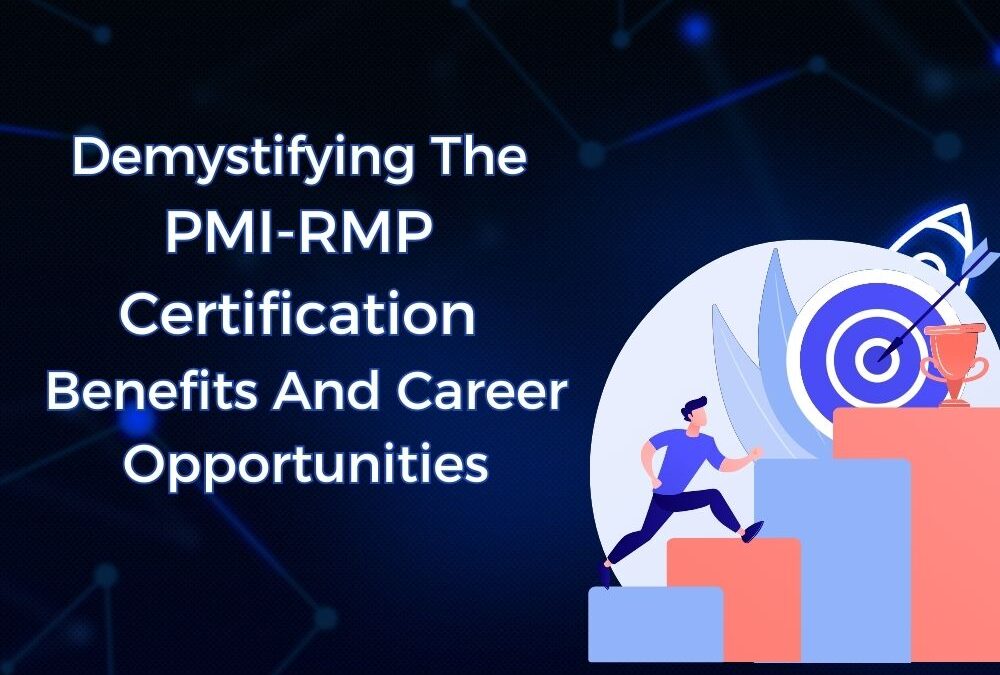In today’s fast-paced business landscape, risk management is a critical component of project success. Whether you’re in construction, IT, healthcare, or any other industry, effectively managing risks can make or break a project. This is where the Project Management Institute’s Risk Management Professional (PMI-RMP) certification steps in, offering a standardized framework to assess, mitigate, and monitor risks throughout the project lifecycle. In this blog post, we’ll delve into the PMI-RMP certification, its benefits, and the career opportunities it opens up for professionals.
In conclusion, the PMI-RMP certification offers a wealth of benefits and opens up numerous career opportunities for professionals seeking to specialize in project risk management. From enhanced skillset and global recognition to lucrative career prospects and networking opportunities, certified individuals are well-positioned to thrive in today’s competitive job market. If you’re passionate about project management and eager to make a tangible impact on project outcomes, pursuing the PMI-RMP certification could be the next step in your professional journey.
Understanding PMI-RMP Certification
The PMI-RMP certification is offered by the Project Management Institute (PMI), a globally recognized organization known for its certifications in project management. Specifically designed for individuals involved in project risk management, this certification demonstrates one’s expertise in identifying, assessing, and controlling risks within projects. To qualify for the PMI-RMP exam, candidates must meet certain prerequisites, including a combination of education and professional experience in project risk management. Once eligible, candidates need to pass a rigorous exam that covers various aspects of risk management, including risk identification, analysis, response planning, monitoring, and communication.Benefits of PMI-RMP Certification
Enhanced Skillset: Pursuing the PMI-RMP certification equips professionals with a comprehensive understanding of risk management principles and techniques. This includes the ability to identify potential risks, assess their impact and probability, and develop effective mitigation strategies. Global Recognition: PMI certifications are recognized and respected worldwide. Holding a PMI-RMP certification demonstrates a professional’s commitment to excellence in project risk management, enhancing their credibility and marketability on a global scale. Career Advancement: With organizations increasingly prioritizing risk management, professionals with PMI-RMP certification often find themselves at the forefront of career advancement opportunities. Whether seeking promotions within their current organization or exploring new job opportunities, the certification serves as a valuable asset. Higher Earning Potential: According to PMI’s Earning Power: Project Management Salary Survey, individuals with PMI-RMP certification tend to command higher salaries compared to their non-certified counterparts. This is attributed to the specialized skills and expertise demonstrated by certified professionals in managing project risks effectively . Networking Opportunities: Becoming a certified PMI-RMP opens doors to a vast network of like-minded professionals in the field of project management. Through PMI chapters, events, and online communities, certified individuals can connect with peers, share insights, and stay updated on industry trends and best practices.Career Opportunities with PMI-RMP Certification
Risk Manager: As the most obvious career path, PMI-RMP certified professionals can pursue roles specifically focused on managing risks within projects. This may involve leading risk management teams, conducting risk assessments, developing risk response plans, and monitoring risk throughout the project lifecycle. Project Manager: Many organizations value project managers who possess specialized skills in risk management. PMI-RMP certification enhances one’s credentials as a project manager, making them well-equipped to handle complex projects with a strong focus on risk mitigation and contingency planning. Consultant: Certified PMI-RMP professionals often find opportunities to work as risk management consultants, either independently or as part of consulting firms. Consultants provide valuable expertise to organizations seeking to improve their risk management processes and ensure project success. Quality Assurance Manager: In industries where quality assurance is critical, such as healthcare and manufacturing, PMI-RMP certification can be advantageous for professionals aspiring to roles in quality assurance management. Effective risk management contributes to overall quality improvement and regulatory compliance. Business Analyst: Business analysts play a crucial role in identifying and analyzing business risks that may impact project outcomes. PMI-RMP certification enhances a business analyst’s ability to assess and mitigate risks effectively, thereby contributing to the success of strategic initiatives and projects.In conclusion, the PMI-RMP certification offers a wealth of benefits and opens up numerous career opportunities for professionals seeking to specialize in project risk management. From enhanced skillset and global recognition to lucrative career prospects and networking opportunities, certified individuals are well-positioned to thrive in today’s competitive job market. If you’re passionate about project management and eager to make a tangible impact on project outcomes, pursuing the PMI-RMP certification could be the next step in your professional journey.

